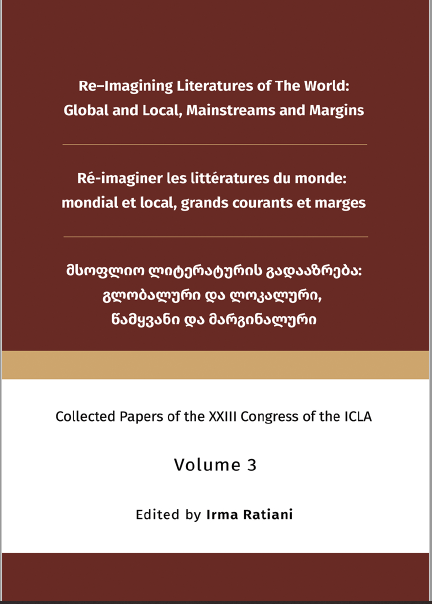Russia Versus Europe: The Collision of Civilisations in the Works of Contemporary Lithuanian Writer Kristina Sabaliauskaitė
Main Article Content
Abstract
Clashes of civilisations reveal the real face of modern Europe, its past phantoms, painful stigmas, so-called breaks in historical experience, crises, and their transformation into an anti-civilisational space. Unfortunately, all this is still happening. Nonetheless, the Lithuanian writer Kristina Sabaliauskaitė opens up this current all-destructive transformation of imperial passions, taking her reader to the geopolitical intersections of history, like Russia’s parading into Europe and its attempt to westernise, describing the era of Peter I through the experiences of the existential survival of his wife, Empress Ekaterina II. Kristina Sabaliauskaitė’s bestseller “Petro Imperatorė” [Peter’s Empress] I, II (2019, 2021) revealed a shocking image of the Russian Empire, which at first Western intellectuals refused to believe, but the history of mentalities here entered the time and punched over the cultural paradigm, i.e., carried out a conversion, purifying the image of the state of terror not only in literature but also in the near reality. These interactions between text and reality provided a significant result – Sabaliauskaitė’s literary phenomenon, penetrating the existence of nations and personalities and heralding a new paradigm of reflections – the collapse of the meaningful spirit of the Russian state in the face of humanistic and Christian values. This global vault of recognised values, which supposedly does not exist in the “Russian world”, has been called powerless many times because, in that world, the Tsar is equated to God. The book’s text highlights a specific pre-mortem downward spiral “without salvation” through the touch of humility and courage, which cannot be killed by the Tsar’s order or the universal humiliation of the orgy circle even when the spiritual power of the European kernel faces despair.l In her two-volume work, the writer delves into the heavy darkness of Russia (Rakutis, 2022) and shows its relationship with aspects of Christianity and the linguistic “sinking” in the trampled ground, the inability to rise from the spiral of dark orgies and catastrophes. Here, the issue of imperial grandeur – the enjoyment of life – and its controversy among Europeans, who are thirsty for the experiences of this prospective grandeur, arise. As the writer points out, the passage of time in Russian cycles, with “we can repeat,” halts space-time and hurts the meanings of existence. It becomes an anti-illusion of history, a prophetic transformation of realism, magnetising both the process of writing and reading into a geopolitical collision – a junction of civilisations, encouraging a revision of its concepts.
